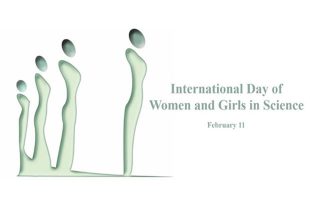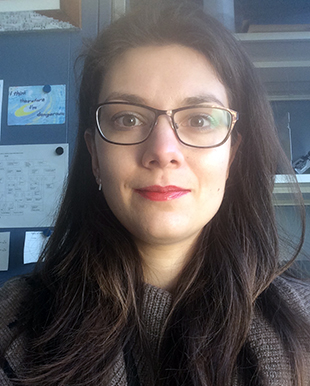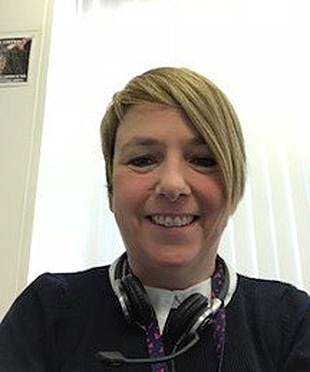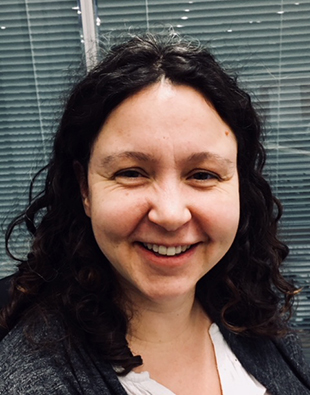Sunday 11 February marks the 3rd International Day of Women and Girls in Science (IDWGS), and we are celebrating the event by hearing from some of our scientists here at APHA, working to safeguard animal and plant health for the benefit of people, the environment and the economy.
 International Day of Women and Girls in Science
International Day of Women and Girls in Science
In February 2015, the Royal Academy of Science International Trust and the United Nations (UN) Department of Economic and Social Affairs held the first High-Level World Women's Health and Development Forum at the United Nations Headquarters. One of the points on the Outcome Declaration of this forum was “to set in motion the mechanisms for the UN General Assembly to declare 11 February an International Day for Women in Science” and so demonstrating the resolve of the international community to put an end to gender inequality in science, employment and education.
This year, the IDWGS theme will focus on “Equality and Parity in Science for Peace and Development”. Transforming our world by 2030 by achieving the UN’s 17 Sustainable Development Goals undisputedly requires the inclusion of women in science in decision-making, policy formulation and implementation, at all levels.
Our scientists
Hear from our scientists as they share their successful scientific careers at APHA and their passion for celebrating IDWGS.

Flavie Vial
“I’m a statistician within APHA’s National Wildlife Management Centre (NWMC). Statistics is the branch of mathematics that deals with the collection, organisation, analysis, and interpretation of numerical data. My role is to provide statistical support to the formulation and implementation of a range of Defra policies, including critical areas such as bovine tuberculosis control in wildlife, parasitology and invasive species management.
“Although not particularly encouraged to pursue scientific topics at school (age 8, I wanted to work in a bakery… unlimited supply of cakes you see), it’s my love and curiosity about life that led me to pursue a degree in zoology. Neither of my parents had been to university or had studied sciences in any depth, so to say that they were sceptical about my career prospects with a zoology degree is an understatement. To be fair, when I started university age 17, I had this picture of becoming the new Jane Goodall, spending my days trying to save cuddly creatures from extinction.
“After 3 years of fieldwork in a national park in Ethiopia (and in doing so, catching most of the tropical parasites in the vicinity), I realised that I wasn’t physically or mentally cut out for a career in conservation biology in the tropics. It was my PhD supervisor at Glasgow University, Professor Dan Haydon who, probably unwittingly, led me to this alternative career path I find myself on. He introduced me to statistics, and working under his mentorship for 5 years, I finally got to appreciate the beauty of mathematics (the exam topic I had quite spectacularly failed during my French Baccalaureate) and how wide their application is!
“A decade and a bit on, I’m now a Chartered Statistician and I recently joined the NWMC, thereby reconciling my love of all things numerical and furry. I realise that I have been, compared to many, quite fortunate in not having encountered overt sexism during my studies or in my many jobs since.
"Having said that, I made a conscious choice in 2015 to leave academia after 5 years as a post-doc as I no longer found joy trying to reconcile the needs of a young family (and my vision of what a work/life balance should be) with the expectations of academic research, a choice too many young women in academia are still forced to make in the 21st century. Having worked as a scientist/woman/mother in the UK, Switzerland and Sweden, I am in a good position to say that no-one has got it 100% right… yet!
"Today, I am a member of the WISE campaign to increase the participation, contribution and success of women in science, technology, engineering and mathematics. 2018 will see my debut as a mentor with their North Yorkshire and East Riding mentorship scheme which I am very excited about. #STEMINIST.”

Julie Lane
“I’m the Deputy Head of the NWMC and an ethics and animal welfare consultant. I’m responsible for the NWMC's Animal, Welfare and Ethics Board and I also carry out research in animal welfare and wildlife management.
“I've been very lucky in my career where I seem to have landed on good opportunities by being the in right place, at the right time. I started my professional journey in a very male dominated arena which led to some challenges and frankly some laughable incidents. My PhD was in clinical research which, at the time, was probably three-quarters or more male. My supervisor was fantastic and the team was mixed gender and supportive and most of all great fun.
"At my first large conference in Madrid, I took my boyfriend as my accompanying person. I think he was a bit put out to find the badges were coloured very ‘appropriately’ with all delegate badges blue and accompanying persons badges pink! Also the conference gift to the delegates was a tie pin… At least the accompanying persons programme didn’t include cross-stitch and scone baking.
“This kind of experience did prepare me though for my biggest challenge which was a post-doctoral position at the University of Cambridge in medicine. Oh dear, that really was an eye-opener for me. I used to think ‘Porterhouse Blue’ was fictional but it was really like stepping into the pages of that book. I think being asked at the interview if I was planning to have children soon should have been my first warning sign. My manager really was not very enlightened when it came to gender equality.
"One example that sticks in my mind was that my project was extended for 3 months past the original end date and my manager asked if I really needed the salary as after all I did have a ‘man to support me’. I was also a fellow of Caius College and was allowed to use the college garden for private events, the key for the garden had written on the fob ‘only to be used by fellows and their wives!’
“After these experiences I moved from clinical research to animal welfare research in the Civil Service starting at the Central Science Laboratory at York from which I have never really looked back. I don’t remember coming across any kind of gender discrimination in my time here and feel very privileged to be able to do a role that I love and where I feel I’m actually making a difference.
“My daughter is now at the start of her career journey (heading off to University this autumn) and I feel very confident that her gender will never be an issue. Firstly because I believe that we are moving away from those kind of attitudes in the workplace, and secondly because she has been brought up in an environment and a culture where she has been encouraged to challenge and not accept discrimination on any level. I’m excited for her future and know it will be bright!”

Emma Snary
“I’m Head of Epidemiological Sciences at APHA. My role as head of the department is to provide high level scientific and strategic leadership to ensure that APHA has the skills and expertise to undertake research and surveillance work across a range of important veterinary disease situations. I also lead on risk analysis and I’m highly experienced in risk assessment for animal health and veterinary public health.
“I had applied to study music at Exeter University but unexpected A level results gave a twist of fate that resulted in a mathematics degree from Cardiff University focusing on statistics and operational research! I really enjoyed the course and so when offered a PhD studentship looking at the effect of treatments on the HIV/AIDS epidemic I decided to stay on.
"It was only after this that I discovered that I could apply these skills to help inform government policy and that I would not be alone in this endeavour. There are lots of opportunities for those with a quantitative background within the Civil Service and many of us taking on these roles are women!
"I joined APHA as a risk analyst, developing quantitative risk assessment models to help inform farm and abattoir controls to reduce the risks to animal and human health from bacteria that can be disseminated through the food chain and that can be resistant to antimicrobials. Working in this area has enabled me to network with highly regarded national and international scientists, to publish my work in peer-reviewed journals, attend scientific conferences but most importantly to ensure that government policy is based on robust scientific evidence.
"Almost 18 years on, I’m now the Head of Epidemiological Sciences with responsibility for leading and developing analytical epidemiologists, risk analysts, mathematical modellers, statisticians, GIS analysts (Geographic Information Systems) and database managers all of whom are applying their disciplines on a day-to-day basis.
"For the past 10 years, I’ve also been a mother and worked part time. Juggling work and home life remains a constant challenge but I've found all of my managers (male and female) to be highly supportive, while still giving me that little push to encourage me to take a step outside of my comfort zone. I enjoy my job and am very proud of my achievements. My only regret is that I have hardly played my flute since that fateful A level results day!”

Sharon Brookes
“I’m the Head of the Avian Virology and Mammalian Influenza Work Group. I also lead on research and development, diagnostics and surveillance, intervention/prevention of notifiable avian disease and am the deputy disease consultant for avian and swine influenza virus.
“From a local comprehensive school in Australia with biology as a major, university was a challenge but a double BSc major in microbiology and biochemistry was finally achieved. The more I learnt the more motivated I became and was selected to undertake an honours degree by research and dissertation. Working in a laboratory with other honours, MSc and PhD students for a year under the guidance of a diligent supervisor inspired me to pursue a career in research. The following year I was lucky enough to obtain the first PhD studentship at AAHL-CSIRO.
“Having learnt a lot about virology and electron microscopy and seeking some new horizons I left Australia for England and a three year post-doctoral position in London. I had learnt a lot but hankered to return to veterinary research from my sojourn in the medical field having achieved my goal of educating myself in the principles of immunology.
“The remainder of my career has involved working with exotic veterinary and zoonotic viruses and hence the requirement to return to high security laboratories akin to that of my PhD days. It is unusual and not for everyone, however, I have found the challenges involved in this type of work very fulfilling. A career in institute based science is also quite different to that in academic science, often more focused, applied and directed by funding bodies than that of academia, but perhaps less so than commercial science. My positions, however, have not prevented me being involved in the education and training of others – BSc, MSc and PhD students plus technical assistants.
“I have an ongoing interest in supporting women in science – starting with my PhD days and CSIRO’s Women in Science Program in Australia. Visiting schools and hosting students at the AAHL labs. This was followed by interaction with Dr Shara Cohen’s EUROSCICON and Mum’s in Science groups: working with them during my maternity leave and beyond – as a scientific advisor and meetings chair person. I've been a member of UK Women Experts in SET (Science, Engineering & Technology) since September 2005. I've spoken about attaining a science career at my son’s school.
“Attaining a permanent position at the APHA provided the security that I was looking for; this has and remains one of the most difficult steps in any career, but especially science. My seven years in the rabies field were satisfying; chances to travel, publish and learning to manage other scientists.
“Now I lead a large influenza work group at the APHA. I manage the team which requires a different set of skills to those learnt at the bench, but it has challenges and rewards of its own.
“For the majority of my career, I've worked full time with some periods of part-time working surrounding the arrival of my two children. Now I juggle work and home life, which at times is difficult for all concerned, but I know that I thrive on all of the challenges and will continue to do so for years to come. Boys growing up into young men and the UK outbreaks of avian, swine and human influenza are just part of all the fun!”
Further information
To further celebrate IDWGS, Sharon talks about APHA’s involvement in the new DELTA-FLU project in her blog.
Look out for more of APHA's scientists sharing their thoughts for IDWGS on APHA's Twitter account from 9 - 11 February. You can also visit the official IDWGS Twitter account to celebrate the achievements of women, known and unknown, remembered and forgotten, who have forged the way for those of us in science today and to give an opportunity for children: girls and boys, to choose role models in science.
Follow APHA on Twitter and don't forget to sign up to email alerts.

2 comments
Comment by Jean McK posted on
Very interesting stories and some good work going on! I look forward to seeing more social scientists in the Science Directorate (an area where women gain over 60% of PhDs - but yet are still underrepresented at the higher levels of industry and academia with economics being particularly bad). As far as I have been able to find out, there are no social scientists in APHA. I am often told that I just do "the fluffy stuff", but as we know, conservation and positive behaviour change are all down to understanding of human behaviour and values!
My other wish is to look at age discrimination. I find that, as I get older, I become more "invisible" in meetings and office relations. And I'm often assumed to be the person to ask about getting coffee or printing out things for meetings, despite having three graduate degrees and 30 years of experience in elite research labs and medical schools.
Comment by APHA science blog team posted on
Hi Jean. We're glad you like the story. Our approach on the social science side is that we access these valuable skills via collaborations with academia and other institutes as and when we need it for projects. This is in recognition that we, like many organisations, have limited resource and so need to make decisions on what skills we can develop and maintain in house with the right critical mass; and which of those (like social science and economics) we are better accessing from specialists sources.